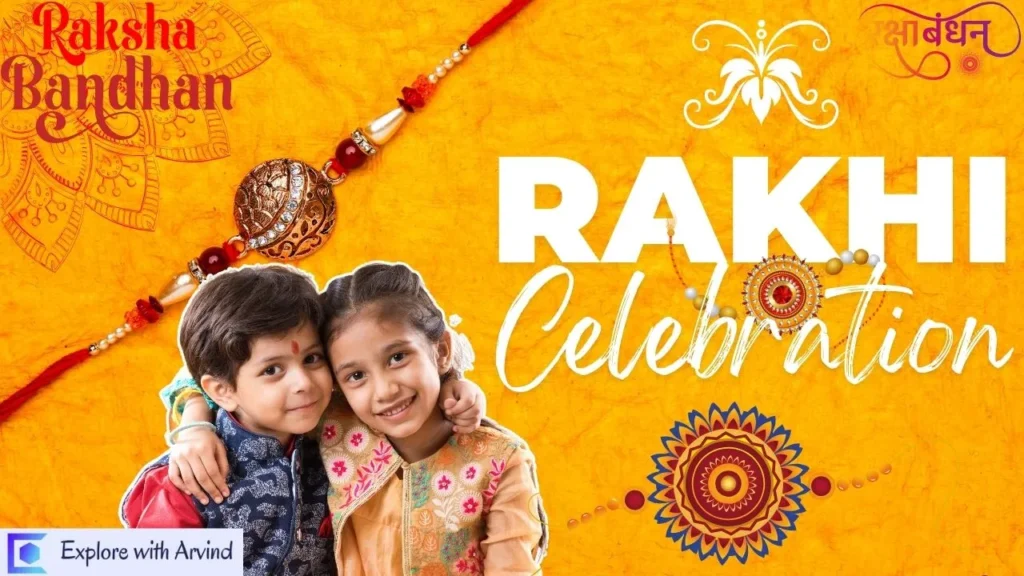Raksha Bandhan 2024: A Revered Festivity Steeped in Antiquity and Symbolism
Table of Contents
ToggleRaksha Bandhan 2024: Exploring the Ancient Traditions, Mythological Roots and Modern Celebrations
Raksha Bandhan: An Introduction
Raksha Bandhan, a cherished festival in the Indian subcontinent, epitomizes the profound bond between siblings. Celebrated with fervor, this occasion transcends mere ritual to embody the intricate tapestry of history, mythology, and tradition. Raksha Bandhan will be celebrated on Monday, the 19th August 2024.
Historical Tapestry of Raksha Bandhan
The roots of Raksha Bandhan delve deep into antiquity, intertwining with myriad tales that have traversed centuries. One such legend harks back to the time of Alexander the Great. It is said that during his invasion of India in 326 BCE, Alexander’s wife, Roxana, sent a sacred thread to Porus, the formidable Indian king, beseeching him to spare her husband in battle. Bound by the sanctity of the Rakhi, Porus honored her plea, abstaining from killing Alexander, even when the opportunity presented itself.
Another venerable tale traces back to the Mahabharata, where Draupadi, the wife of the Pandavas, tears a strip of her sari to bandage Lord Krishna’s bleeding wrist. Touched by her gesture, Krishna vows to protect her, a promise he fulfills during the infamous dice game when she is humiliated in the Kaurava court. This act of protection became the very essence of Raksha Bandhan, symbolizing the unwavering commitment of a brother towards his sister.
Mythological Underpinnings
The festival also finds resonance in the celestial narrative of the gods and demons. According to one such myth, Indra, the king of gods, was on the verge of defeat in a fierce battle against the demon king, Bali. Sachi, Indra’s consort, in her desperation, sought Lord Vishnu’s counsel. Vishnu provided her with a sacred thread, which she tied around Indra’s wrist. Empowered by its divine protection, Indra emerged victorious. This story underscores the protective power of the Rakhi, not just among mortals but also in the divine realm.
Another poignant myth revolves around the bond between Yamuna, the river goddess, and Yama, the god of death. Yamuna tied a Rakhi around Yama’s wrist, and in return, he granted her immortality. This myth encapsulates the enduring nature of the Raksha Bandhan bond, transcending even death.

The Modern-Day Celebration
In contemporary times, Raksha Bandhan has evolved, yet its core essence remains untouched. On this day, sisters tie a Rakhi, a sacred thread, around their brothers’ wrists, symbolizing their love and prayers for their brothers’ well-being. In return, brothers vow to protect their sisters, offering them gifts as tokens of their affection.
The Rakhi itself has transformed over the years, from simple threads to elaborate, ornamental creations. It is often accompanied by a plate filled with sweets, rice, and vermilion, symbolizing prosperity and purity. The ritual begins with the sister performing an Aarti, a ceremonial prayer, and applying a tilak on her brother’s forehead, before tying the Rakhi. The brother, in turn, offers gifts and pledges to safeguard her against all adversities.
Cultural and Social Significance
Raksha Bandhan is not merely a familial ritual but also a societal celebration, promoting values of unity and harmony. In regions like Rajasthan and Gujarat, the festival extends beyond blood relations, with women tying Rakhis to men who they consider as brothers, thus fostering social bonds. It is also common for people to tie Rakhis to soldiers, acknowledging their role as the protectors of the nation.
The festival, thus, serves as a reminder of the responsibilities that come with relationships, urging individuals to honor their commitments towards one another, not just in times of need but throughout life.
Digital Age Relevance
As we navigate through the digital age, Raksha Bandhan has found its place in the virtual world as well. E-commerce platforms witness a surge in the sale of Rakhis, gifts, and sweets as people send their tokens of love across distances. Social media is abuzz with siblings sharing memories and well-wishes, adding a contemporary layer to the age-old tradition.
Conclusion
Raksha Bandhan, with its rich historical and mythological tapestry, remains a vital part of the Indian cultural mosaic. It is a festival that, despite evolving with time, continues to uphold the values of love, protection, and duty. As siblings come together to celebrate this bond, they reaffirm their commitment to each other, a pledge as old as the festival itself. Whether through ancient legends or modern-day practices, Raksha Bandhan remains a testament to the enduring strength of the sibling bond.


